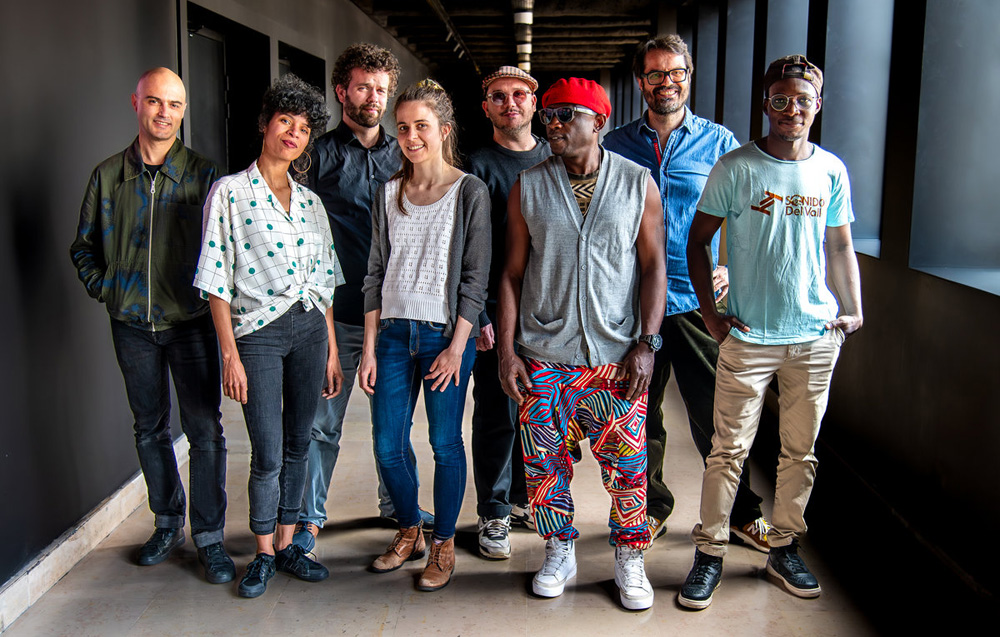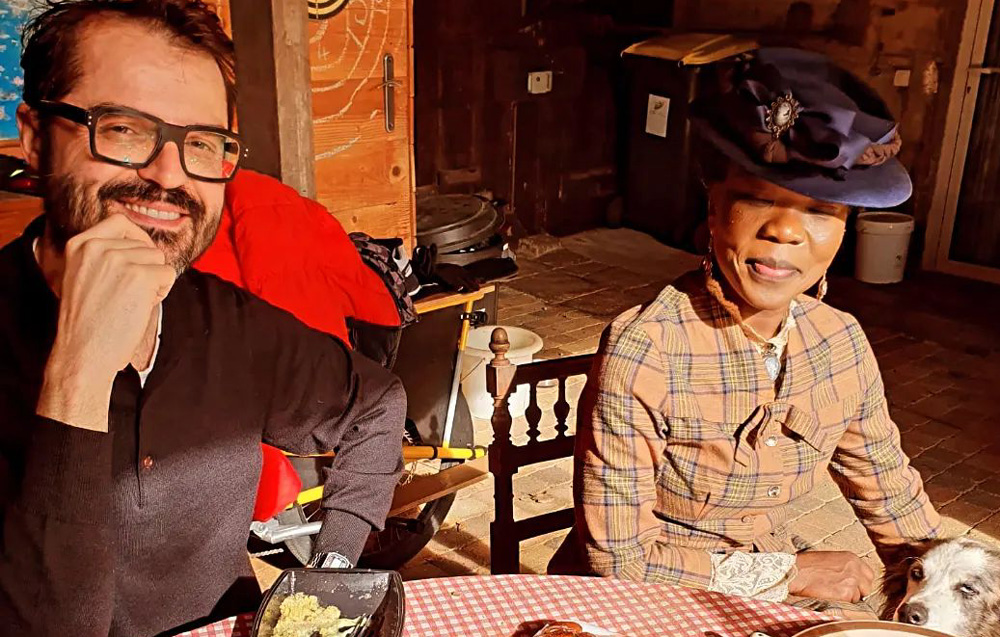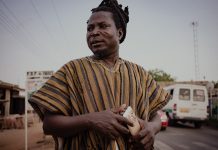The Bongo Hop is an Afro-Caribbean project led by French trumpeter Etienne Sevet. The new album “La Pata Coja” featured many guests.

The Bongo Hop play a dance mix of different styles, including afrobeat, Colombian costa music and jazz. Their music has a clear ambition to build bridges, invite dancing and give vent to emotions. After “Satingarona pt 1 + 2” and “La ňapa”, the band is back with a new album featuring guest appearances by Afro-Colombian singer Nidia Góngora, voodoo Haitian sensation Moonlight Benjamin and Brazilian pioneer, producer and singer Lucas Santtana. Each of the album’s eight tracks features a different guest vocalist.
Music career
Born in Bordeaux and living in Lyon, seemingly a mecca for alternative music and musicians in recent years, Etienne Sevet became a performing musician at 34 years old, inspired by 8 years living in Cali, Colombia as an emigrant journalist. He taught himself how to play the trumpet and has never had academic training and it wasn’t until 2011, upon his return to France that his music career and the development of his band, took shape.
La Pata Coja is the band’s fourth album proper, following 2022’s La Ñapa that featured Paulo Flores from Angola, Souad Asla and Nidia Góngora. The previous was an album that had morphed from the early Satingarona LPs whilst La Pata Coja (without producer Patchworks) takes a simpler approach.
As ever the band circumvent the Atlantic in search of their musical dreamland and La Pata Coja, which translates to ‘the gammy leg’, starts out in Colombia where band leader and writer Etienne Sever lived for several years. Latin-derived, Afro-Colombian pacific dance music pervades the set, given a soulful, jazzy and Caribbean uplift, with polyrhythms, plentiful brass and an organic freshness and zing with its’ hands-off production ethic.
“This time around, there were no limitless modifications and improvements. What was recorded the day of the session is what people hear in the end, so it’s like seeing us on stage” Etienne sad.
Guests
The Gongora family influence on La Pata Coja is extended with two tracks sung by Nidia, who is widely known for both her solo work and records with Will ‘Quantic’ Holland. She has long been making music with The Bongo Hop and also introduced her niece Francy Bonilla who sings on the track Mi Olla. She is also from Timbiqui, a town on the Pacific coast of Colombia and kicks off the album with a passionate and emotive soliloquy about Colombia’s beauty, moving past negative reputations of the country. Nidia Góngora regularly tours with the band who have performed the world over including at much revered Festival Du Bout du Monde in France and at London’s Barbican Centre. In France they find themselves at the cross roads of the ‘tropical music scene’ where artists are re-engaging with classic global sounds, incorporating influences yet building something new like Meridian Brothers or label mates Dowdelin.
The song “Eko Eko” was sung by Haitian singer Moonlight Benjamin, known for her sonorous voice. For Etienne, the choice of collaborator is absolutely key. He seldom leans on a derivative voice of a region or people. Rather he prefers to view the what in French they call ‘le grain’, an oft-preferred look in photography revealing texture and authenticity rather than the postcard -perfect digitally enhanced version. “it’s about the soul” says Etienne.
Reconnecting with Haiti and with singer Kephny Eliacin (who guested on The Bongo Hop’s debut Satingarona Pt 1 in 2019), “Dekonekte” is about Kephny’s life as an immigrant, and making ends meat, in Paris, juggling his work in a local food market and as musician. It blends the Colombian influence with a classic Martinik biguine, an infectiously groovy tune, with Kephny’s baritone voice running proceedings.

Inspiration by comics
The title track is about those lessons you learn in life, and that sometimes you have to cope with whatever is thrown your way. Etienne composed the song whilst recovering from an accident in Dominica where he damaged his cruciate ligaments and was worried it would curtail his favourite activity of hiking. When he passed the song to Nidia, she told him of her recent loss of two of her brothers and her Mother. She was helpless. After a while, Etienne and Nidia discussed their circumstances and concluded that no matter the scale, there are wounds that leave you changed forever. Yet you carry them on your back and you keep walking the path of life. And you may even dance again, with your ‘pata coja’ (gammy leg).
The Bongo Hop draws its name from an old leftfield comic book Etienne used to read as a kid – a gift from his parents who wanted to plant a seed. The narrative was around an African sailor and his journey through a troubled continent in the post colonial years. A kind of Afro version of Corto Maltese. It’s about what you do, and who and what you meet and how getting lost is actually a door opening allowing self-discovery.
And with that in mind, Etienne continues, through a shared artistry with his travelling companions on this musical journey, to bridge cultures and musical forms, all with a smile and sense of positivity, usually with more than a nod to the dancefloor.
Underdog Records a NMR (photo: press The Bongo Hop)
















